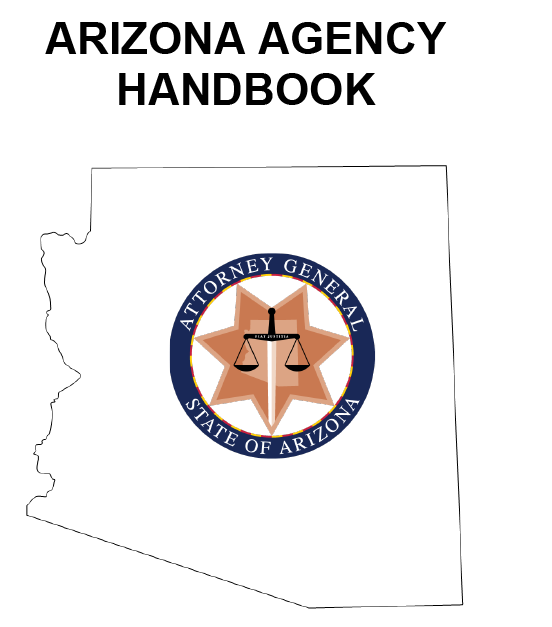Agency Handbook
Publication Category
Arizona Revised Statute §41-192(A)(8) requires the Attorney General to “compile, publish and distribute to . . . persons and government entities on request, at least every ten years, the Arizona agency handbook.” Due to the high cost of publishing, the current version of the Handbook is posted on the Attorney General’s Web site to satisfy this statutory requirement. (Revised 2018)

TABLE OF CONTENTS
CHAPTER
01. THE ATTORNEY GENERAL AND THE DEPARTMENT OF LAW
02. PUBLIC OFFICERS AND EMPLOYEES
03. PERSONNEL
04. PUBLIC MONIES
05. PROCUREMENT
06. PUBLIC RECORDS
07. OPEN MEETINGS
09. LICENSING
10. ADMINISTRATIVE ADJUDICATIONS
11. RULEMAKING
12. ENFORCEMENT
13. LITIGATION AGAINST STATE ENTITIES
14. DETECTION OF CRIMINAL VIOLATIONS
16. LOBBYING